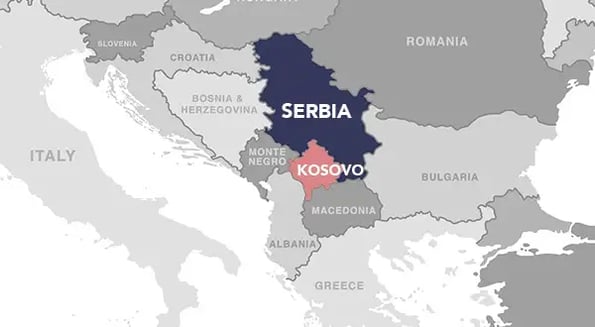Throughout Europe, clocks that rely on alternating current to tell time — those found on ovens, radios, microwaves, and other devices — are running up to 6 minutes slow.

The unlikely cause: a long-running dispute between the countries of Serbia and Kosovo.
“I’m gonna need an explanation here”
Back in 2008, Kosovo declared independence from Serbia. Since then, the EU has spent years trying to normalize relations between the two countries.
But Serbia has refused to recognize Kosovo’s sovereignty — and as a result, ethnic Serbs residing in northern Kosovo have declined to pay electric bills to Kosovo’s utility department.
For some time, Kosovo’s government subsidized the cost of electricity for Kosovo-residing Serbs. Then, last December, they stopped paying…
Which just so happened to throw off Europe’s entire grid
Thing is, 25 countries in Europe (including Kosovo and Serbia) are on what’s called the Continental Europe power system. These 25 countries all use the same electrical network, which runs on a frequency of 50Hz.
The disruption caused by the Serbia-Kosovo power feud has caused the entire grid to slow from 50Hz to 49.996Hz — enough to knock alternating current-dependent clocks, like those on ovens, slightly out of whack.
Last week, Kosovo’s public energy firm said it would temporarily start paying the bills again, but the Hz deficit could take weeks to rectify. And until then, the ol’ “I’m late to work because of an ongoing sovereignty dispute” excuse will remain fair game.

